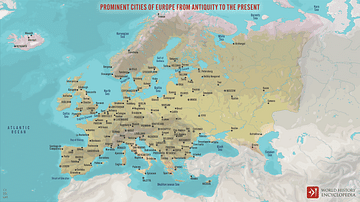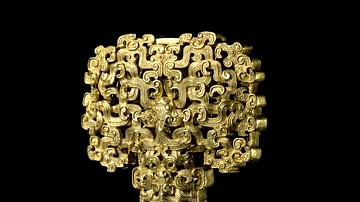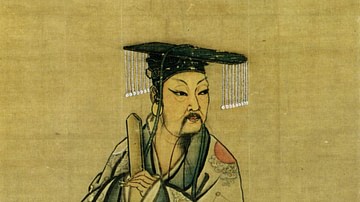Search
Search Results

Article
How Did Hitler Rise to Power?
The rise of Adolf Hitler (1889-1945), the Nazi dictator of Germany from 1933, was enabled by those already in power eager to take advantage of his popularity. Hitler promised to make Germany great again after the humiliation of WWI by restoring...

Article
The Temple in Jerusalem
According to Jewish tradition, the original Jerusalem Temple was ordained by Yahweh/God, as described in 2 Samuel 7:12 where Yahweh commands Nathan to tell David: When your days are fulfilled and you lie down with your ancestors...

Article
The Origins of British Pub Names
Pubs remain a prominent feature of the rural and urban landscapes of Britain, but their names very often date back to medieval times. Red lions, white horses, and colourful characters peer from pub signs as landlords choose names to represent...

Article
Kesh Temple Hymn
The Kesh Temple Hymn (c. 2600 BCE) is the oldest work of literature in the world, sometimes referenced as the oldest extant religious poem. It is a Sumerian praise song to the goddess Ninhursag and her temple in the city of Kesh, composed...

Definition
Sumerians
The Sumerians were the people of southern Mesopotamia whose civilization flourished between c. 4100-1750 BCE. Their name comes from the region which is frequently – and incorrectly – referred to as a “country”. Sumer was never a cohesive...

Definition
Europe
Europe is a continent forming the westernmost part of the land mass of Eurasia and comprised of 49 sovereign states. Its name may come from the Greek myth of Europa, but human habitation of the region predates that tale, going back over 150,000...

Definition
Zhou Dynasty
The Zhou Dynasty (1046-256 BCE) was among the most culturally significant of the early Chinese dynasties and the longest lasting of any in China's history, divided into two periods: Western Zhou (1046-771 BCE) and Eastern Zhou (771-256 BCE...

Definition
Civilization
Civilization (from the Latin civis=citizen and civitas=city) is a term applied to any society which has developed a writing system, government, production of surplus food, division of labor, and urbanization. The term is difficult to define...

Definition
Xia Dynasty
The Xia Dynasty (c. 2070-1600 BCE) was the first government to emerge in ancient China and the first to adopt the policy of dynastic succession. Consequently, the Xia was the first dynasty of China. Long regarded as a mythical construct of...

Definition
Buddhism
Buddhism is a non-theistic religion (no belief in a creator god), also considered a philosophy and a moral discipline, originating in the region of modern-day India in the 6th and 5th centuries BCE. It was founded by the sage Siddhartha Gautama...